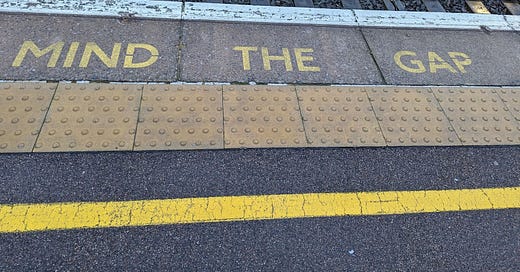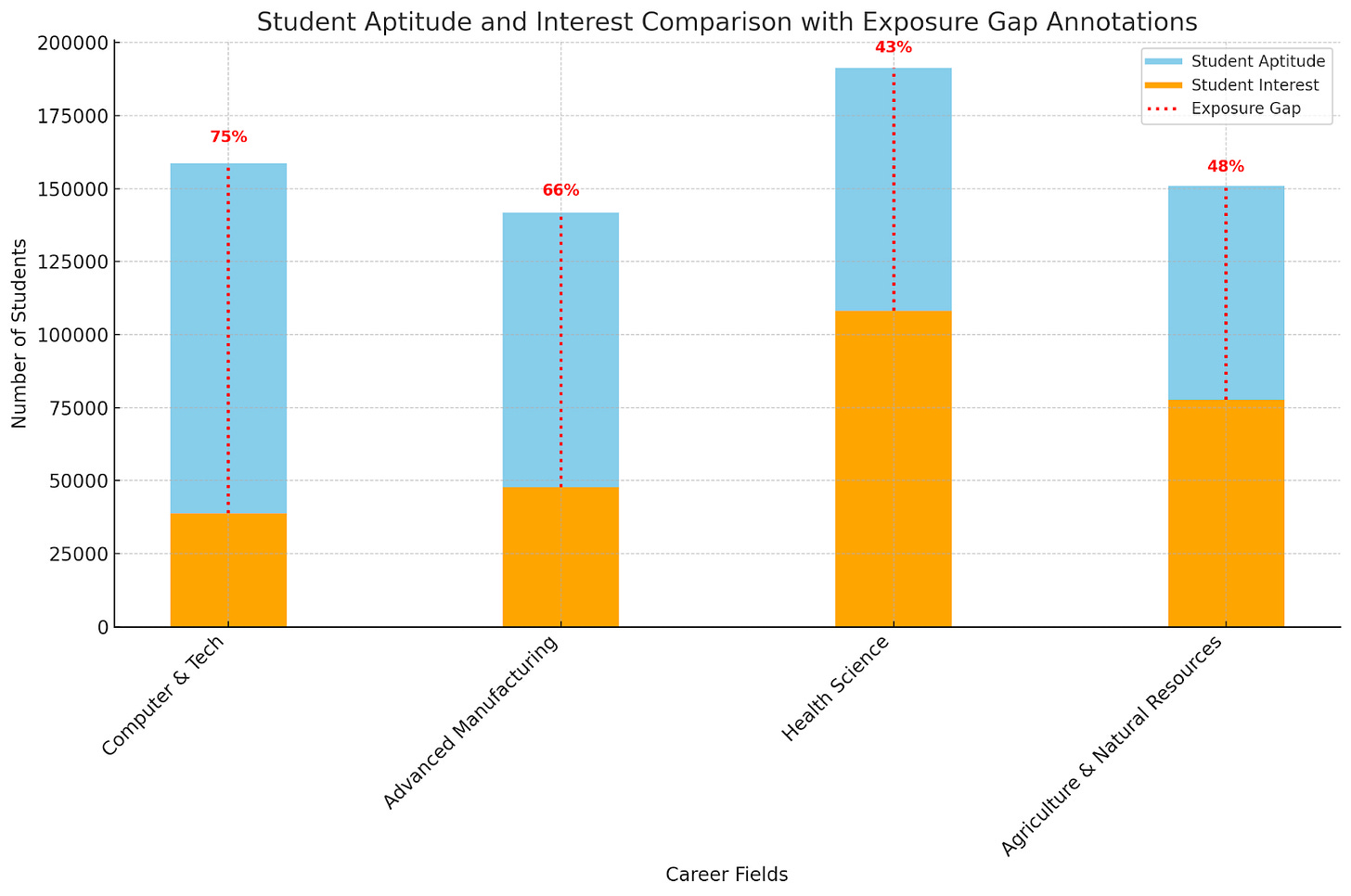Mind the Exposure Gaps
At nearly every family gathering with my husband’s side of the family, my brother-in-law inevitably raises some doomsday scenario about the impacts of generative AI. It happened again this past Easter weekend. We all tease him with how obsessed he is with AI, but what he’s most concerned about is helping his kids navigate a future with so much uncertainty. He wants to be a better guide for them through their life journey.
There’s a certain sort of helplessness we can’t help but feel as we witness the velocity of technological advancements. Things are evolving so insanely rapidly. Even the hallucinations that AI experts were initially worried about as unsolvable were quickly reined in by retrieval-augmented generations (RAGs) that confined Large Language Models (LLMs) to specific datasets. If you had asked innovators what problem they needed to solve when ChatGPT first became popularized, they would have pointed to hallucinations. Well, a couple of months passed, and that issue seemed to be resolved.
So, given the exponential advancements in technologies, I think one concrete thing that we can do for young people right now is to expose them to a wide variety of industries and jobs.
Why? Because we only know what we know. Or, we only know what we’re exposed to. And for most young kids, they’re not exposed to a lot of the even more “traditional” industries that exist today.
A 2024 survey by YouScience of 540,000 middle and high school students across all 50 states shows how great the exposure gaps are for young people. Although people from all backgrounds have the required aptitudes to be successful in many different careers, most simply don’t even know that these opportunities exist:
“This [exposure] gap shows students have not been exposed to careers in which they might have a best fit. Therefore, students may struggle to find fulfillment, may incur additional costs in postsecondary education as they figure out their path, and likely will miss out on high-demand opportunities where they could thrive.”
YouScience’s bar graphs are much prettier than mine, but as an abbreviated summary, only 25% of those with the aptitude for computer and technology work signaled an interest in that industry. There’s a 75% exposure gap for kids in better understanding the opportunities that exist as a computer systems analyst, web developer, computer programmer, software developer, information security analyst, cybersecurity analyst, or aerospace engineer.
Only 34% of those with the aptitude for advanced manufacturing work signaled an interest in a field that includes mechatronics, electrical or industrial engineers, and machinists—revealing a 66% exposure gap.
There was a 48% exposure gap in students understanding roles in agriculture and natural resources, such as environmental service system manager, agricultural commodity broker, environmental compliance inspector, farm manager, rancher, agricultural technician, and animal scientist.
You get the picture. The exposure gaps are huge.
We tend to rely heavily on our social networks for cues and guidance. But if our families and friends do not have a wide aperture of the world of work, we, too, will be similarly limited in our view. We may fail to see “people like us” in the roles that may promise great futures.
In a prior post, we discussed how the world needs more ways for young people to try on different jobs for fit. Where are the dressing rooms for the jobs of the future? They don’t really exist, and so it’s up to us to help expose kids to the opportunities that they may have never heard of.
Of course, this means that parents may also have to learn about various roles and industries. But if we do more of this with our children, we can ideally minimize their exposure gaps. In addition, if kids have a better understanding of the work that currently exists, they will also be able to extrapolate their thinking to imagine the jobs that might not exist yet. Young adults will be able to begin to make the cognitive leap from where they are today to where they may want to go tomorrow.
Parents will never be fully knowledgeable guides in this age of AI, but we can certainly help our children mind their exposure gaps.
Dr. Michelle R. Weise is the author of Long Life Learning: Preparing for Jobs that Don’t Even Exist Yet and leads Rise and Design, a strategic consulting and advisory service for businesses and higher education institutions.






